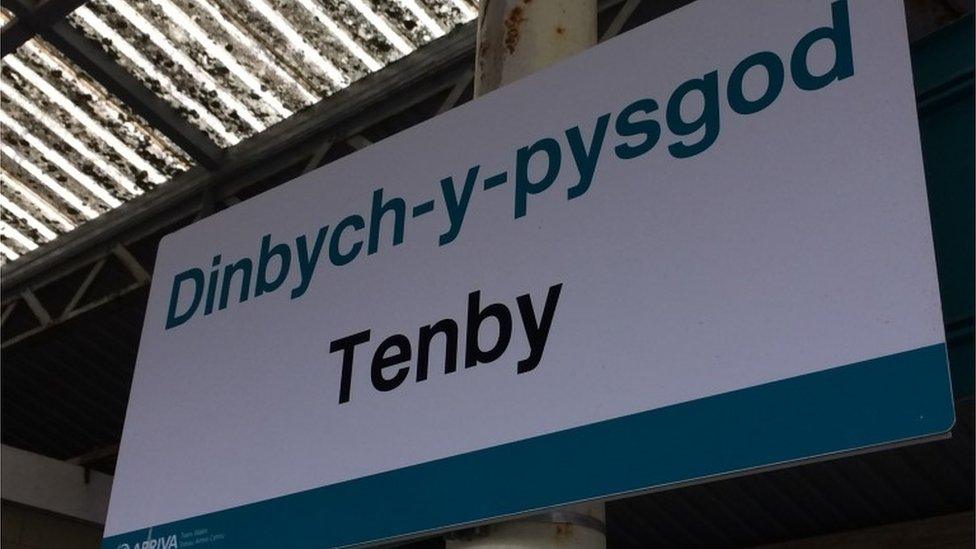Public space orders 'make innocent behaviour offences'
- Published
From 2017: How residents of Pill reacted to the original public spaces protection order
There are now almost 390 public space protection orders to tackle anti-social behaviour in Wales, new figures show.
The orders (PSPOs) restrict activities ranging from drinking alcohol in public to begging and rough sleeping.
Campaigners have called the orders "unprecedentedly broad" and criticised them for targeting vulnerable people.
The Home Office said they should only be used "proportionately" but some residents in areas with PSPOs have said they help combat "nuisance" behaviour.
PSPOs in Wales exist in areas as small as bus stops to entire town centres, such as Llanelli and Newport, and whole counties, including Rhondda Cynon Taf and Merthyr Tydfil.
Restricted activities include drinking alcohol in public, youths gathering - such as on The Donkey Path promenade in Colwyn Bay - and begging and rough sleeping in Rhyl, Denbighshire.
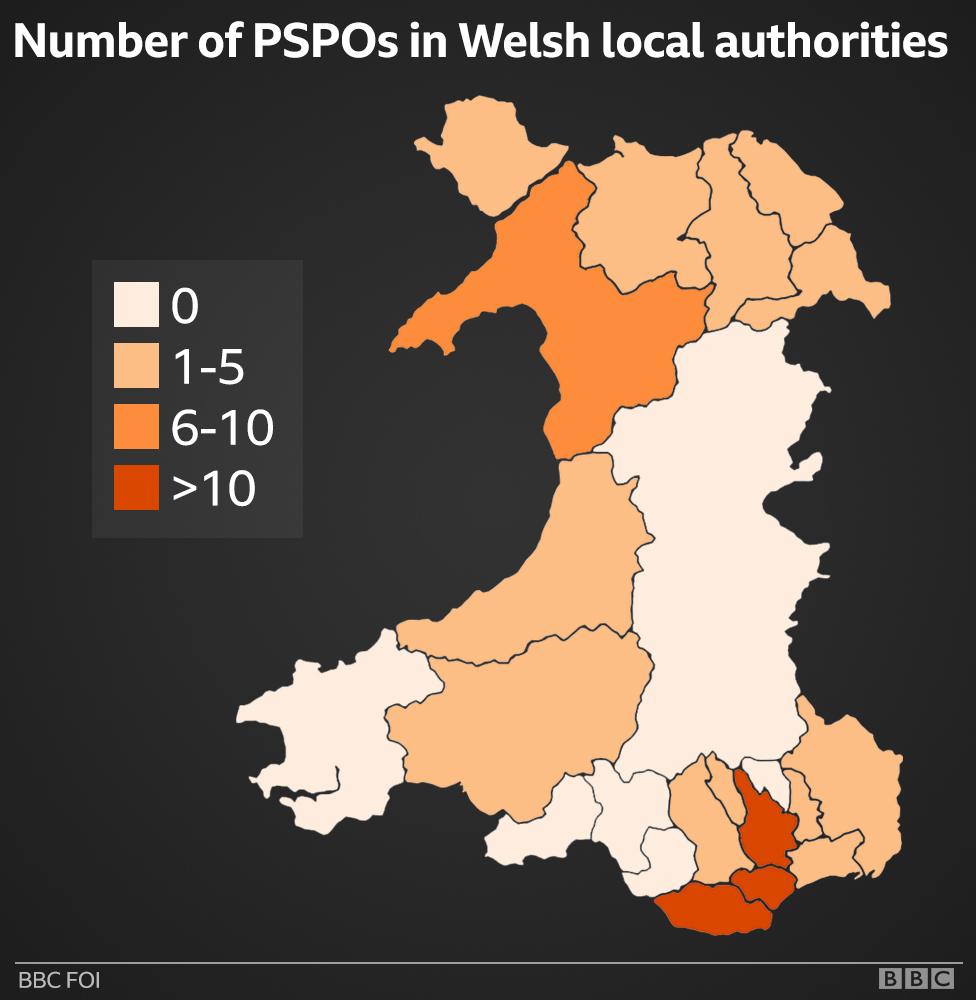
Some PSPOs are imposed across entire town centres, while others cover smaller areas
Figures obtained under the Freedom of Information Act show there are now 388 PSPOs against anti-social behaviour in Wales, with many councils also using additional orders to restrict dogs in public spaces.
Lara Ten Caten, a lawyer for human rights group Liberty, said: "There are already many measures in criminal law to tackle anti-social behaviour.
"These PSPOs essentially let councils sweep anyone or anything they deem inconvenient or undesirable off their streets, meaning innocent activities have become offences overnight."
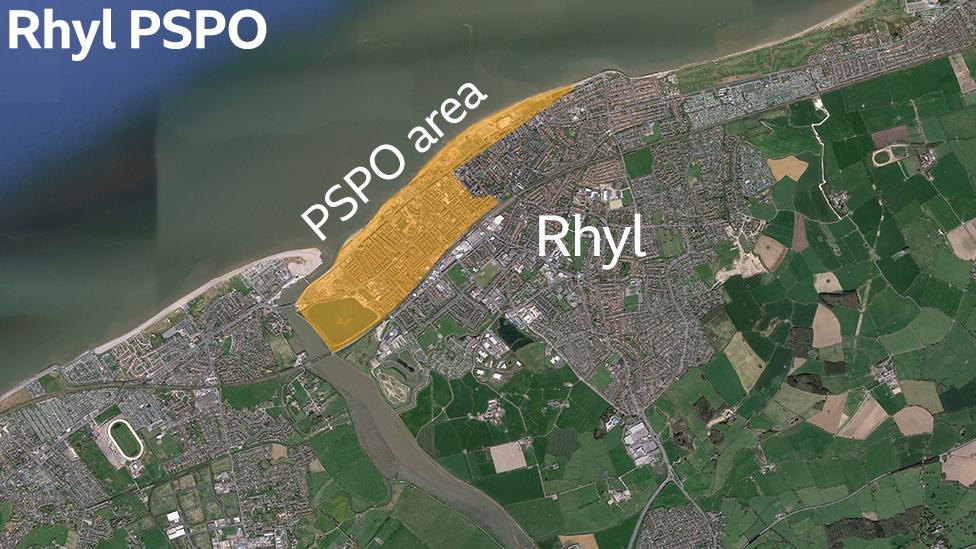
A PSPO in Denbighshire covers large parts of Rhyl
In July, Newport council voted to implement a PSPO in Pillgwenlly, known locally as Pill, restricting drinking alcohol outside licensed areas, congregating in groups of three or more, and possessing or consuming intoxicating substances.
One resident who responded to a consultation on the plans said: "I live in a street where gangs are gathering every day and it a nuisance. It's not fair on the residents".
Another wrote: "I think the [police] officers should be trained to use best judgement - often there are people congregated to genuinely socialise and chat, what you shouldn't be doing is criminalising community spirit."
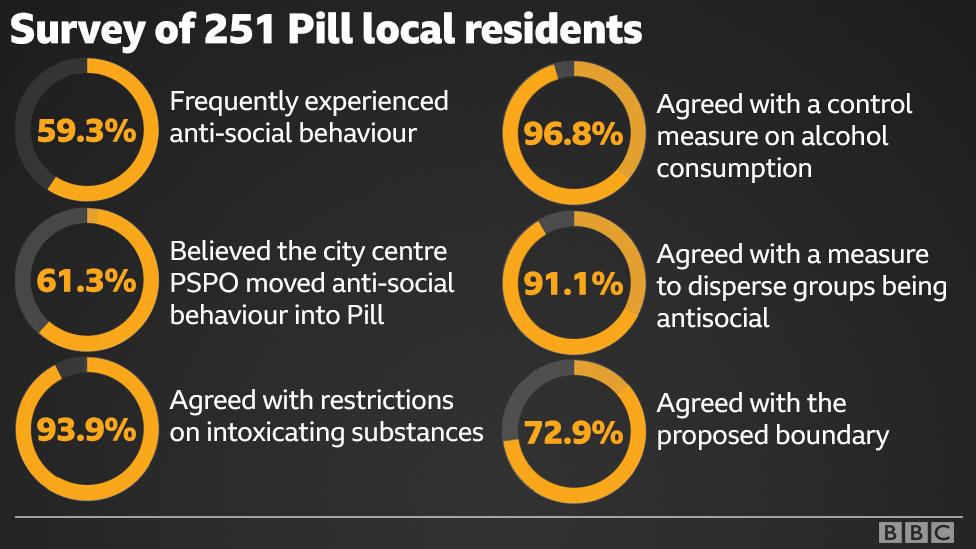
Pill residents were asked about how anti-social behaviour affects them before the introduction of the PSPO in July
Since its introduction some residents said they had noticed a difference.
Mike Ross said: "I moved here in June and there was quite a lot of anti-social behaviour.
"They raided my street where I live not so long afterwards and there's been no trouble whatsoever ever since. If the police are here, it's a good thing."
But pharmacy worker Alexis Bayley said: "You've got people who drink a lot, people who take drugs a lot, a lot of them are homeless, so it's not their fault.
"[Police] come locally quite often and move them downwards, but when the police are gone they tend to come back because they're so used to their community area and it's where their friends are as well."
Josie Appleton, director of The Manifesto Club campaign against hyper-regulation of everyday life, said PSPOs were "unprecedentedly broad as a power" and "allow councils to create crimes".
"Nobody knows what qualifies as having a detrimental effect on the quality of life, so this could end up including something someone doesn't like on the basis of taste," she said.
But Gwent Police said PSPOs had been issued to tackle specific issues and it had worked hard with partner agencies to consult with residents before any were implemented.
"A PSPO gives us extra powers to use if we feel the legislation we currently have is not proving effective enough," a spokesman added.
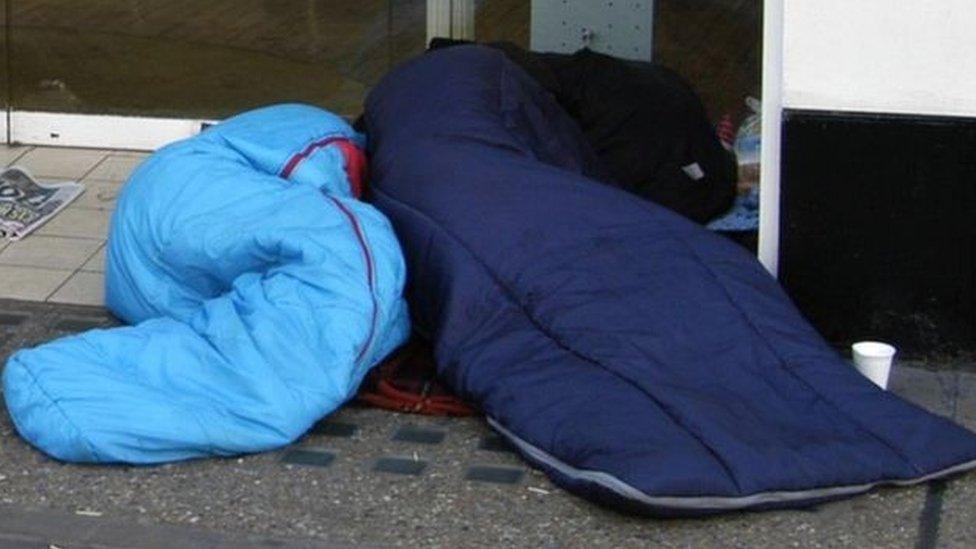
Shelter Cymru said PSPOs were just "moving problems on and hiding them"
Shelter Cymru successfully campaigned against a PSPO in 2015 which would have seen rough sleeping banned in Newport.
Campaigns manager Jennie Bibbings said: "If you are going to use a punitive approach you have to be very confident that the [homelessness] services we have in Wales are appropriate and at the moment we can't say that.
"Just last week, we had a conversation with a man who said that, 'if you fine me for begging, I've got to go and beg in order to pay that fine'."
She said some of the affected people had suffered "massive trauma" and PSPOs could "re-traumatise" them, making it harder for them to "engage with services" to get help.
A Home Office spokeswoman said: "We are clear Public Spaces Protection Orders should be used proportionately to tackle anti-social behaviour, and not to target specific groups or the most vulnerable in our communities."
- Published9 December 2017
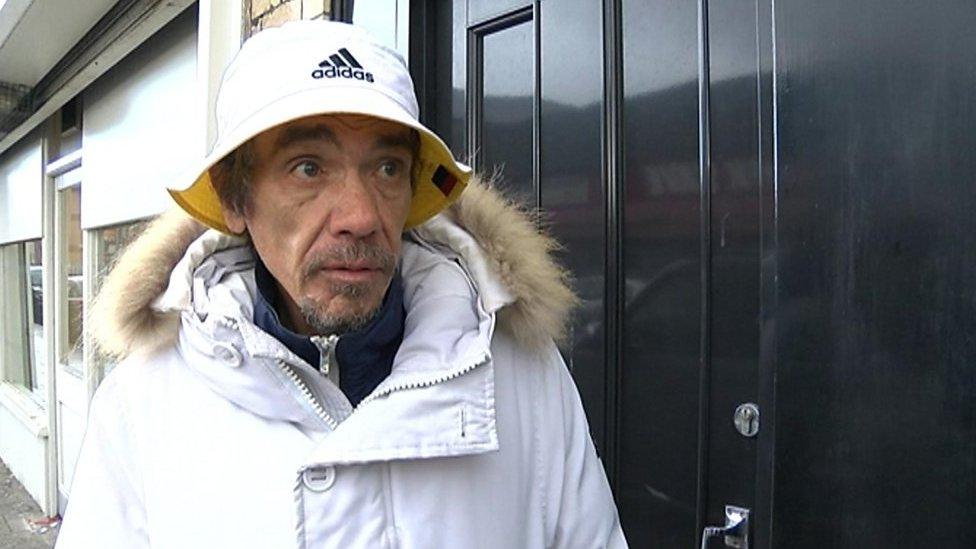
- Published25 July 2017
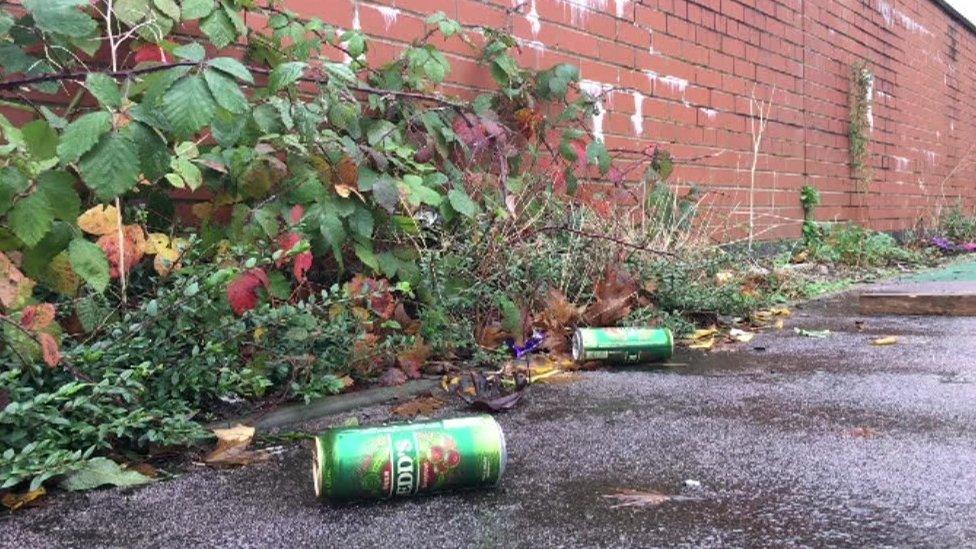
- Published31 August 2017

- Published24 July 2017
